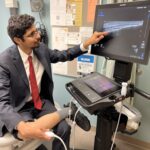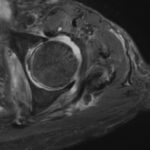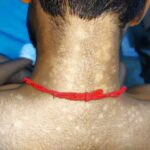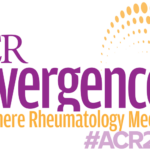In this episode, Dr. Kumar tackles issues from the dual perspectives of a clinician who also happens to have inflammatory arthritis.


In this episode, Dr. Kumar tackles issues from the dual perspectives of a clinician who also happens to have inflammatory arthritis.

Kamini E. Kuchinad, MD, MPH, Ambereen Mehta, MD, MPH, David Wu, MD, & Jemima Albayda, MD |
“Our patients’ goals for their care aren’t always the same as ours. We’re typically focused on disease control, and they’re often focused on quality of life. Having ongoing discussions about care goals is the only way to know when it’s time to switch gears. Would you know when to refer your patients to palliative care?…

It was like a reverse Uno card had been thrown onto the table. My patient was now asking his rheumatologist, “Are you okay? You look like you’re in a lot of pain.” He was right. I was wincing trying to get up from my seat and limping trying to get a few steps over to…
Figueroa-Parra et al. set out to evaluate the effect of glucocorticoid regimens on renal response, infections and mortality rates among patients with lupus nephritis (LN). The researchers analyzed the control arms of randomized clinical trials and found a higher exposure to glucocorticoids during the initial treatment of LN was associated with better renal outcomes, at the cost of increased infections and mortality.

Ilana P. Goldberg, MD, & Samuel Faught, MD |
Renal osteodystrophy is associated with chronic kidney disease (CKD) and its associated metabolic derangements, most commonly CKD stages 3–5. It is often subclassified into four histological subtypes, with definite distinctions unable to be made clinically. These four subtypes, which may only be differentiated by bone biopsy, include: osteitis fibrosa cystica, mixed uremic osteodystrophy, osteomalacia and…

Rohan Goel, MBBS, MD, Rashmi Roongta, MBBS, MD, DM, Dipendranath Ghosh, MBBS, MD, DM, & Parasar Ghosh, MD, DM |
Autoimmune rheumatic diseases (AIRDs) are known for their systemic presentations and multi-organ involvement. Numerous infectious diseases, particularly mycobacterial, fungal and indolent bacterial infections endemic to specific geographic regions, present with varied signs and symptoms of multi-system involvement and can mimic AIRDs. Thus, differentiating infection from an AIRD is critical to resolve competing treatment approaches. This…

This year’s theme for Rheumatic Disease Awareness Month focuses on self-management, aiming to provide tools and tips to empower patients, boost awareness about the importance of self-management and, ultimately, improve patient outcomes.

An engaging mix of new and returning programming is planned for ACR Convergence in Washington, D.C. “ACR Convergence is unique because of the blend of high-quality science, updates on advances in clinical care and networking opportunities to advance the field of rheumatology,” says Annual Meeting Planning Committee (AMPC) Chair Gregory C. Gardner, MD, MACP. “We…

Prajakta Masurkar, PhD, MPharm, & Charis Meng, MD |
Ethical conduct is the cornerstone of any professional organization, particularly when its decisions have an impact on public health. The ACR recognizes the importance of upholding ethical standards and has established a Code of Ethics to guide its members. Here we explore the practical application of the ACR’s Code of Ethics.1 Manage Potential Conflicts Central…

As the Asia-Pacific League of Associations for Rheumatology (APLAR) convened its 26th annual congress in Singapore this August, Ellen M. Gravallese, MD, was honored as an APLAR Master. Dr. Gravallese is currently the Theodore Bevier Bayles Professor of Medicine at Harvard Medical School, Boston, chief of the Division of Rheumatology, Inflammation and Immunity at Brigham…

Upadacitinib, as a tablet and oral solution, is now FDA approved to treat children age 2 years and older with active polyarticular juvenile idiopathic arthritis or psoriatic arthritis.